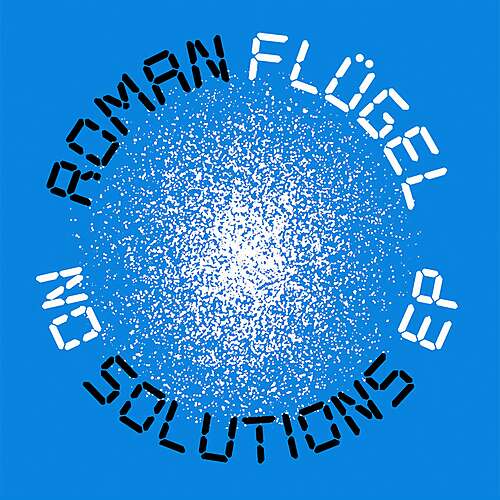Roman Flügel
country: Germany
genre: Electronic
styles: Electronica, Float House, Frankfurt Electronic
ABOUT THIS ARTIST
Since the early '90s, Roman Flügel has been one of Germany's most productive electronic artists. Initially known for his many projects with longtime collaborator Jörn Elling Wuttke (including Acid Jesus, Alter Ego, and Sensorama), Flügel has also released dozens of recordings under his own name as well as aliases such as Roman IV, Eight Miles High, and Soylent Green. Under all of these pseudonyms and collaborative ventures, his output has ranged from acid techno, deep house, and electro to more experimental work drawing from jazz, Krautrock, and ambient music. As cerebral, exploratory, and occasionally caustic as his work has been, he also has a pop side, and has remixed artists such as Kylie Minogue, Pet Shop Boys, and Daft Punk. In addition to all of this, he is also the co-owner of Frankfurt-based labels Ongaku Musik, Klang Elektronik, and Playhouse. Two decades into his career, he began releasing solo albums under his own name, starting with 2011's Fatty Folders. Two further albums for the Dial label followed, and the mix Fabric 95 arrived in 2017. Ambient/Krautrock-influenced album Themes I-XIII was released in 2018, and the experimental techno full-length Eating Darkness appeared in 2021.
Born in Darmstadt in 1970, Flügel learned to play piano at a young age, and later took up drums and joined several bands during high school. By the mid-'80s, he had discovered electronic music via the EBM scene. After getting into Chicago house and Detroit techno in 1987, he began creating his own tracks using cheap drum machines and synthesizers. Eventually, he started attending club nights at Sven Väth's Omen club in Frankfurt, where he discovered the heavy bass of English techno act LFO, and other early Warp artists. He sent a demo tape of his music to Wuttke, and they began their long-running collaboration. Heiko Schäfer and Atanasios Christos Macias, both DJs and co-workers at Frankfurt's Delirium record store, were astounded by the recordings produced by Flügel and Wuttke, and they established their family of labels. Acid Jesus released their self-titled full-length on Klang Elektronik in 1993, followed by a few additional singles. However, experimental electro outfit Alter Ego proved to be the duo's most prolific group, with half a dozen albums on Harthouse and Klang Elektronik, in addition to dozens of singles and EPs. Sensorama, a more relaxed, lounge-friendly project, was also productive, with three full-lengths on Ladomat 2000. A self-titled ambient techno gem credited to the Primitive Painter surfaced on Klang in 1994. The duo's "Surprise" single, credited to Holy Garage, was the first release on Playhouse in 1995.
As a solo artist, Flügel was most active as Eight Miles High (whose Klang Elektronik EPs were collected as the 2002 full-length Katalog) and Soylent Green (with several EPs on Playhouse as well as the 2006 full-length La Forza del Destino), with a handful of singles as Roman IV and a self-titled 1995 full-length as Ro70 also surfacing. Other than a couple of singles with Schäfer (aka MSO) during the late '90s, Flügel didn't start using his own name for his recordings until 1998's "Mankind Must Put an End to War." Several volumes of Tracks on Delivery EPs appeared on Ongaku Musik during the early 2000s. In 2004, Cocoon released Flügel's single "Geht's Noch?" Re-released internationally in 2005, the track ended up being a huge club hit, and was a major influence on the Dutch house sound, which in turn fed into the more commercial dance music referred to as EDM during the 2010s. Even with club success, Flügel was producing jazz-influenced techno with vibraphonist Christopher Dell; the duo's full-length Superstructure appeared on Laboratory Instinct in 2005.
By the end of the decade, Flügel had largely abandoned most of his pseudonyms, instead focusing on work under his own name. Following a 2009 EP on Tiga's Turbo label, Flügel began a long-standing relationship with the Dial label, starting with the 2010 EP How to Spread Lies. The year also saw the release of his first mix CD, Live at Robert Johnson, Vol. 5. The solo full-length Fatty Folders appeared on Dial in 2011. Following singles on additional labels such as Live at Robert Johnson and Clone Jack for Daze, in addition to a collaboration with Simian Mobile Disco on their Delicacies label, Flügel returned to Dial in 2014 for the full-length Happiness Is Happening. The EP Sliced Africa appeared on the label in 2015, and the double EP Monday Brain followed on Technicolour later in the year. In 2016, Verschiebung EP was released by Die Orakel, and Flügel's third Dial full-length, All the Right Noises, appeared in October.
Mix album Fabric 95 was released in 2017. While Flügel continued issuing club EPs like Black Acid, his 2018 full-length Themes I-XIII (issued by ESP Institute) was closer to some of his ambient/downtempo projects from the '90s. The ebullient Fun Fort single appeared on Mule Musiq in 2019, and Running Back issued Garden Party (2020). Additionally, Apollo reissued the Primitive Painter's only full-length, and a compilation of Flügel's Tracks on Delivery material was issued by Sister Midnight. He also formed the duo Noun with Daniel Avery, releasing the debut single Meeting of the Minds on Live at Robert Johnson.
Running Back issued Flügel's 2021 EP Anima and full-length Eating Darkness, another of his more exploratory efforts. The abstract Ro70 full-length was reissued for the first time in 2022. Mega, a flashback to '80s dance music, appeared on Running Back, and Yes People was released by Rekids. ~ Paul Simpson, Rovi
Releases
Similar Artists and Bands








